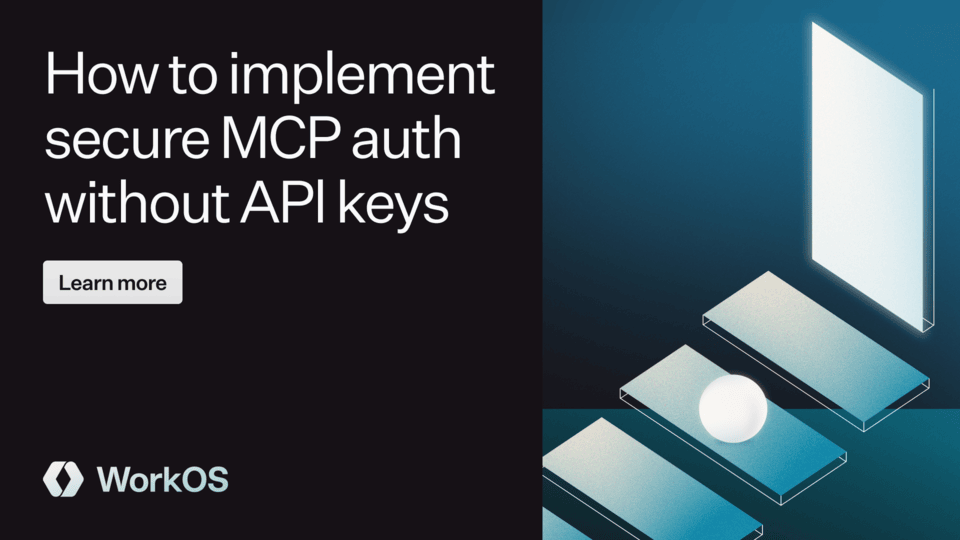Welcome, Developers! 👋
Today: Anthropic's Claude Haiku 4.5 delivers flagship-level coding at budget pricing, Python 3.14 brings 27% speed gains, and Vite+ aims to unify JavaScript tooling. Plus insights on scaling AI systems and modern Node.js file operations. | | |
| |
|

| How to implement secure MCP auth without API keys The MCP Registry makes it easy for LLMs to discover tools, but discovery alone isn’t enough.
Tools still need to act on behalf of users, and that requires secure, delegated access. API keys don’t cut it. They’re hard to scope, break user flows, and undermine the promise of seamless integration.
WorkOS Connect delivers a fully compliant OAuth 2.1 flow. It handles PKCE, scopes, user consent, and secure token issuance out of the box. |
| Ship secure MCP Auth | |
| |
🔖 The Reading Room
Articles we have hand-picked for you: | | |
Introducing Claude Haiku 4.5
Anthropic's Claude Haiku 4.5 delivers coding performance comparable to the former flagship Sonnet 4 model at one-third the cost and twice the speed. The new small model even surpasses Sonnet 4 in computer use tasks while maintaining near-frontier capabilities. Available today across all platforms with $1/$5 per million token pricing.
By Anthropic → | |
Python 3.14 Is Here. How Fast Is It?
Python 3.14 runs approximately 27% faster than 3.13 in pure Python benchmarks. The free-threading interpreter shows impressive gains for CPU-heavy multi-threaded workloads, running up to 3x faster than the standard interpreter. However, the experimental JIT compiler showed minimal improvements.
By Miguel Grinberg → | |
Announcing Vite+: A Unified Toolchain for JavaScript
Designed to solve tooling fragmentation in large organizations, Vite+ combines project scaffolding, testing with Vitest, linting with Oxlint, formatting, library bundling, and monorepo task running under unified vite commands. Vite+ is open for early adopters with companies like Framer, Linear, and Shopify already joining in. By Evan You → |
| Lessons Learned from Building AI Systems at Scale
Six key lessons for successfully deploying AI at scale: building trust beyond accuracy, ensuring data quality, prioritizing human adoption, implementing responsible AI governance, scaling for real impact, and positioning AI as a human collaboration tool rather than replacement. By Pranjali Ajay Parse → |
| Reading and Writing Files in Node.js - The Complete Modern Guide
Essential guide covering the do's and don'ts of file operations in Node.js production applications. Learn proper error handling, resource cleanup, and when to choose between sync vs async methods. By Luciano Mammino → | | |
| |
| |
🔗 The Link Lounge Unordered finds from around the web: Find something cool? You can send us links to feature here via email. |
| | | | |
🧰 The Toolbox
Tools and products we're excited about today: | | | |
Claude Code Templates
Claude Code Templates provides 100+ ready-to-use configurations for Anthropic's Claude Code, including AI agents, custom commands, settings, hooks, and external integrations with an interactive CLI installer and monitoring tools. Learn more → | |
jsonriver
jsonriver is a lightweight, fast, dependency-free JavaScript library for parsing JSON incrementally as it streams in. It yields increasingly complete values, matches JSON.parse correctness, and works across all JS environments with no external dependencies. Learn more → | |
Onedump
Onedump is a Go-based database administration tool for streamlined backup and restore across MySQL and PostgreSQL. It supports multiple storage destinations (S3, Google Drive, Dropbox, SFTP), binlog backups, slow log parsing, and runs in Docker with zero dependencies for native MySQL dumping. Learn more → | |
Beads
Beads is a lightweight, git-backed issue tracker designed for AI coding agents. It provides dependency tracking, ready work detection, distributed sync via git, and extensible SQLite storage to give agents long-term planning capability and memory across sessions. Learn more → |
| | |
How to implement secure MCP auth without API keys
The MCP Registry makes it easy for LLMs to discover tools, but discovery alone isn’t enough.
Tools still need to act on behalf of users, and that requires secure, delegated access. API keys don’t cut it. They’re hard to scope, break user flows, and undermine the promise of seamless integration.
WorkOS Connect delivers a fully compliant OAuth 2.1 flow. It handles PKCE, scopes, user consent, and secure token issuance out of the box.
The WorkOS advantage:
- Compliant with MCP OAuth 2.1
- Handles redirects, consent, and scopes
- Easy to drop in and fast to ship
Ship secure MCP Auth with WorkOS Connect | | |
| 🎤 Your Voice Your feedback shapes what comes next! We read every email, so simply hit reply and tell us what's on your mind. |
| | | | |
|
|